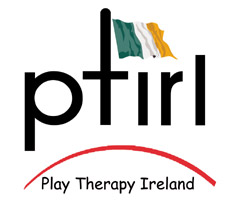News Highlights – the latest developments in Irish & International play therapy, therapeutic play and filial play.
Ireland Play Therapy Demand Model Published
We are delighted to announce that APAC are starting the delivery of the MA in Practice Based Play Therapy Programme, with the Post Graduate Certificate in Therapeutic Play Skills, on 20th April, 2018 at: Carnloch Court Training Centre, Cork. For a link to the course details please click HERE. For venue details please click HERE.
All members receive an electronic newsletter “Irish Play therapy newsletter” this includes local information on upcoming training, any changes locally, We include job opportunities and we welcome any information you would like to have included. Notices, queries, maybe you have had an experience in your practice that you would like to hear how other therapists may have managed it in our Therapist dilemma section. This newsletter is in its early development, first developed by Sheena Cadogan Play therapist and further developed by Yvonne Power CEO. We look forward to its continued growth and development with the support of all our play therapy Ireland members.
Play Therapy Ireland has just constructed a model showing the potential demand for Play Therapists in each of 180 areas and the 26 counties of Ireland. This was programmed by Play Therapy International using data sourced from the 2006 Census obtained by a student attending the Postgraduate Certificate in Therapeutic Play Skills run by APAC at Marino Conference Centre. The design is based on the PTUK model that has helped students and members present a case for funding over the last four years.
The model shows that the two counties with the highest need are:
Cork County 139 and Dublin City 134 estimated Play Therapists required.
The area with the highest demand is: Mulhuddart, Fingal, which is estimated to need 22 therapists.
The total estimate for Ireland is 1531 therapists. We believe that there are less than 200 play therapy practitioners – so there’s a long way to go!
Members may obtain the statistics for their local area from the Resources section of the Members Only area, under Resources > Demand Model Data – PopulationStatistics.
The conference held in Dublin was well attended with 299 delegate days.
The key note address by Margot Sunderland was outstanding in content and presentation. It was given a rapturous reception by the delegates. Margot provided a concise review of neuroscience research relating to child development and the importance of play as a way of developing and rectifying problems that occur in the healthy growth of the brain. (Full report in the Summer 2007 issue of the ‘Play for Life’ journal).
The conference was opened by Monika Jephcott, President of PTI. She presented the latest PTI research results, based on over 700 cases, in Ireland and the UK, where pre and post therapy measures have been obtained, as summarised below. These confirm the main previous finding that 70% of children receiving play therapy from therapists trained to PTI and PTUK standards of competencies will show a positive change.
An overwhelming case for the use of play therapy is made by combining the neuroscience research and PTUK’s practice based evidence research.
Our fourth research report is based upon the total dataset (as at April 2007) held in, the PTI database of play therapy clinical outcomes, developed and managed by PTUK. It includes cases covered in previous reports.
The data has been supplied by 167 PTUK and PTIrl members who have been trained by APAC to the PTI competency standards.
Gender
The clients are two thirds boys, one third girls. This proportion has been remarkably consistent during the six years we have been recording data.
Girls 32% Boys 68%
Age
The figures show that:
* The majority of clients being of primary school age.
* However some play therapists work with young people
Type of Intervention
This is a the second time we have carried out this analysis. The results are similar to the last time. The majority of the sessions are 1:1 with 48% being short term (1 to 12 sessions) and 36% being long term (over 12 sessions). Only 16% of the recorded cases used group work. It is rather surprising that group interventions are not used more frequently in the climate of cost effectiveness and throughput targets.
Changes in Total Difficulties
|
N |
% |
|
| Improved |
524 |
68.59% |
| No change |
61 |
7.98% |
| Worse |
179 |
23.43% |
|
764 |
100.00% |
The 68.59% of cases showing a positive change is lower, by about 2%, than predicted from previous data. It was hypothesised that a large batch of data received from students contained cases who were initially assessed as ‘normal’ and where it would be difficult to effect a positive change – indeed providing therapy might stimulate dormant issues from the unconscious. An analysis of changes was undertaken using initial assessment scores of 10, 20 and 30. This shows that the percentage of cases showing a positive change increases with the severity of total difficulties problems.
As shown in the table below, by excluding the children who were in the ‘normal’ classification, 73% of the children showed a positive change. Change in Total Difficulties – Clients With a Pre Therapy Score of 10+
|
N |
% |
|
| Improved |
453 |
72.95% |
| No change |
40 |
6.44% |
| Worse |
128 |
20.61% |
|
621 |
|
Changes in Pro-Social Scores
|
N |
% |
|
|
Improved |
385 |
54.77% |
|
No change |
162 |
23.04% |
|
Worse |
156 |
22.19% |
|
703 |
100.00% |
As with total difficulties it was decided to test the hypothesis that cases with the more severe pro-social problems would show a higher percentage cases exhibiting positive change.
Changes in Pro-social – Clients Pre Therapy Score <5
|
N |
% |
|
| Improved |
226 |
77.13% |
| No change |
39 |
13.31% |
| Worse |
28 |
9.56% |
|
293 |
100.00% |
The data again show that the percentage of cases showing a positive change increases with the severity of the pro-social issues
The 2007 Conference saw the launch of the APAC Filial Play Coach/Mentor Certificate course conforming to PTI’s recently set competency standards. It was an experimental 3-day course designed for experienced Play Therapists. It was rated highly by the participants who felt that an extra day would have been beneficial. Accordingly the next version of this course will be four days and some minor adjustments in content will be made. Timing and venues have yet to be set for Ireland. Members interested in extending their play therapy practice and skills should email mokijep@majemail.com The emphasis is on the development of coaching and mentoring skills to enable parents to use non-directive play.
APAC are also currently delivering the first 6-day Filial Play Coach/Mentor course for an Education Authority. This is designed for those with little or no play therapy skills but have experience of working with parents and families. This includes: Social Workers, Health Visitors and Family Liaison Officers. The course teaches both non-directive play skills and coaching and mentoring techniques in an in-house environment. Organisations who have at least 16 staff who would benefit from this type of training should contact APAC on +44 (0) 1825 761143 or email mokijep@majemail.com
With 136 A4 pages published in 2007 ‘Play for Life’ editions, the journal has again beaten its own target of 100 pages for the year. This is well ahead of the minimum commitment to provide 64 pages per year for members and is a record number for a year. Worldwide, it has the highest content of material for the play therapy practitioner of any journal.

